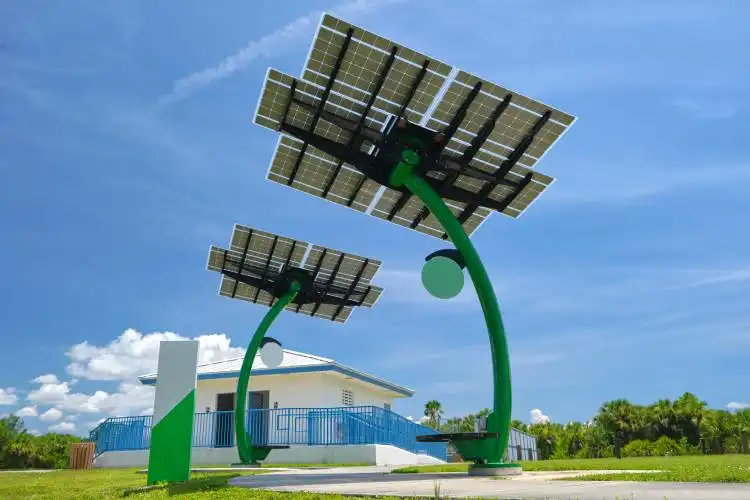Start a Sustainable Construction Materials Business
Being the Green Superhero of the Construction World
| Updated


SUSTAINABLE CONSTRUCTION MATERIALS BUSINESS
Looking to go green with your next business venture? What about launching into the burgeoning field of sustainable construction materials? This eco-minded business actually involves producing and selling building materials that are both environmentally friendly and energy-efficient. Imagine, you'll be the superhero of the construction world, saving the planet one sustainable brick at a time while still turning a profit. Nothing says success more than making green by being green!
Jump to Business Plan
RELATED BUSINESS IDEAS
Browse ALL Sustainability & Eco-Friendly Initiatives Business Ideas
Discover Your Perfect Domain
Unlock the door to your online success with our hand-picked selection of premium domain names. Whether you're starting a new venture or rebranding an existing one, the right domain can set the tone for your digital presence. Browse through our curated list, each with its unique potential to enhance your brand's visibility and credibility.
SUSTAINABLE CONSTRUCTION MATERIALS MINI BUSINESS PLAN
This a quick reality check to help you identify the strengths and weaknesses of your business concept before you dive in.
Expected Percent Margin
- Gross Margin: 30-45%
- Net Profit Margin: 10-15%
Earnings Expectations:
- Daily Earnings: $300 - $800
- Weekly Earnings: $1,500 - $4,000
- Monthly Earnings: $6,000 - $16,000
- Annual Earnings: $72,000 - $192,000
Actions to Hit Those Numbers:
Sustainable Inventory Management
- Initial Investment: Approximately $50,000-$100,000 for the procurement of sustainable materials.
- Supplier Relations: Engage with 3-5 suppliers focused on sustainable and innovative materials.
Marketing and Customer Acquisition
- Digital Marketing: Allocate a budget of at least $1,000 monthly towards SEO, content marketing, social ads, and other online promotion strategies.
- Networking: Actively engage in local and online construction industry communities.
Sales and Customer Experience
- Knowledgeable Sales Team: Hire and train a sales team well-versed in the benefits of sustainable construction materials.
- Client Relationship: Maintain constant open communication with clients to ensure all doubts are clarified regarding these innovative products.
Cost Control
- Store/Office Lease: Aim for a lease under 10% of projected monthly sales.
- Utilities: Budget around $200-$600 per month, depending on the location and size of your warehouse or store.
Business Operations
- Store/Office Timing: Open the business doors for at least 8-9 hours a day, 5 days a week.
- Targets: Aim for selling to 5-10 construction or renovation projects a month with an average contract price of $5,000-$10,000.
Remember that these are generalized estimates, and the actual figures may vary broadly based on your specific location, economic conditions, and the various strategic decisions you make in your business. Always seek tailored advice from a professional financial advisor.
NOT WHAT YOU HAD IN MIND? Here are more ideas



Browse ALL Sustainability & Eco-Friendly Initiatives Business Ideas
Grab Your Business Website Name
Before you get caught up in the whirlwind of setting up your business, invest in a domain name. It's a small but significant step that lays the foundation for your brand and makes it easier for customers to find and trust you. Just like you wouldn't build a house without securing the land first, don't build a business without securing your domain name.
"Why? Can't that wait?" Here's why it shouldn't
Step 1: Determine if the Business is the Right Endeavor
Breakdown of Startup Expenses
Before starting a sustainable construction materials business, it is important to understand the startup costs associated with the endeavor. This includes the cost of materials, equipment, and labor. Additionally, there may be costs associated with obtaining the necessary permits and licenses, as well as any legal fees associated with setting up the business. It is important to understand the full scope of the startup costs in order to ensure that the business is financially viable.
Breakdown of Ongoing Expenses
In addition to the startup costs, it is important to understand the ongoing expenses associated with the business. This includes the cost of materials, equipment, and labor for ongoing projects. Additionally, there may be costs associated with maintaining the necessary permits and licenses, as well as any legal fees associated with running the business. It is important to understand the full scope of the ongoing expenses in order to ensure that the business is financially viable.
Examples of Ways to Make Money
There are a variety of ways to make money in a sustainable construction materials business. This includes selling materials directly to customers, as well as providing services such as installation and repair. Additionally, the business may be able to generate revenue through contracts with other businesses or government entities. It is important to understand the various ways to make money in order to ensure that the business is financially viable.
Step 2: Name the Business
When it comes to naming a business, it is important to choose a name that is memorable and reflects the mission and values of the business. It is also important to make sure that the name is not already taken by another business. To ensure that the name is not already taken, it is important to do a thorough search of the internet and business databases to make sure that the name is not already in use. Additionally, it is important to make sure that the name is not too similar to another business name as this could lead to legal issues. It is also important to make sure that the name is easy to spell and pronounce. Finally, it is important to make sure that the name is not too long or complicated.
Once a name has been chosen, it is important to register the business name with the local government. This will ensure that the business name is legally protected and that no other business can use the same name. Additionally, it is important to register the business name with the United States Patent and Trademark Office to ensure that the business name is protected from infringement.
Once the business name is registered, it is important to make sure that the name is used consistently across all marketing materials and websites. This will help to ensure that the business is easily recognizable and that customers are able to find the business easily. Additionally, it is important to make sure that the business name is used consistently across social media platforms to ensure that customers are able to find the business easily.
Finally, it is important to make sure that the business name is used consistently across all legal documents and contracts. This will help to ensure that the business is legally protected and that all contracts are legally binding. Additionally, it is important to make sure that the business name is used consistently across all financial documents to ensure that the business is properly accounted for.
Step 3: Obtain Licenses and Permits
The third step in starting a sustainable construction materials business is to obtain the necessary licenses and permits. Depending on the location, there may be different licenses and permits required. For example, in the United States, businesses must obtain a business license, a seller’s permit, and a federal tax ID number. Additionally, depending on the type of business, there may be additional permits required such as a zoning permit or a health permit. It is important to research the local laws and regulations to ensure that all necessary licenses and permits are obtained.
Cost of Licenses and Permits
The cost of obtaining the necessary licenses and permits will vary depending on the type of business and the location. Generally, the cost of a business license and a seller’s permit is relatively low, but additional permits may be more expensive. Additionally, there may be ongoing fees associated with certain permits such as a zoning permit. It is important to research the cost of the necessary licenses and permits prior to starting the business.
Where to Obtain Licenses and Permits
The necessary licenses and permits can typically be obtained from the local government or state government. Additionally, some permits may be obtained from other organizations such as the local health department. It is important to research the local laws and regulations to determine which organization is responsible for issuing the necessary licenses and permits.
Benefits of Obtaining Licenses and Permits
Obtaining the necessary licenses and permits is important for any business. Having the necessary licenses and permits will ensure that the business is operating legally and will protect the business from potential legal issues. Additionally, having the necessary licenses and permits may also make it easier for the business to obtain financing or other resources.
Step 4: Create a Business Plan
Creating a business plan is an important step in the process of starting a business. A business plan is a document that outlines the goals and objectives of the business, as well as the strategies and tactics that will be used to achieve those goals. It should include an analysis of the market, an assessment of the competitive landscape, and a financial plan. It should also include a description of the products or services that will be offered, a description of the target market, and a description of the marketing and sales strategies that will be used.
Benefits of a Business Plan
Having a business plan is essential for any business, as it provides a roadmap for the future. It can help the business owner to identify potential problems and opportunities, and to develop strategies for dealing with them. It can also help to attract investors and lenders, as it provides a clear and concise description of the business and its goals. Additionally, it can help to ensure that the business is well-positioned to succeed in the marketplace.
Writing a Business Plan
Writing a business plan can be a daunting task, but it doesn't have to be. There are many resources available to help entrepreneurs create a comprehensive business plan. These resources include templates, software programs, and online courses. Additionally, there are many professional services that can help entrepreneurs create a business plan. These services can provide assistance with market research, financial analysis, and other aspects of the plan.
Step 5: Secure Financing
Securing financing is an important part of starting a business. There are a variety of sources of financing available to entrepreneurs, including traditional bank loans, venture capital, and angel investors. It is important to research the different types of financing and decide which one is best for your business.
Develop a Business Plan
Developing a business plan is essential for any business, but especially for a sustainable construction materials business. A business plan should include a detailed description of the business, a market analysis, a financial plan, and a marketing plan. It is important to be thorough and accurate when creating a business plan, as it will be used to secure financing.
Apply for Financing
Once the business plan is complete, the next step is to apply for financing. This includes researching and applying for bank loans, venture capital, and angel investors. It is important to be prepared for the application process, as lenders will be looking for detailed information about the business.
Finalize Financing
Once the financing has been secured, the next step is to finalize the financing. This includes signing the loan documents and setting up the payment plan. It is important to read through the loan documents carefully and make sure that all of the terms and conditions are understood. Once the financing is finalized, the business is ready to move forward.
Step 6: Find a Location
When selecting a location for a sustainable construction materials business, there are several factors to consider. First, the location should be in an area that is conducive to the type of business being established. For example, if the business is selling recycled materials, the location should be near a source of recycled materials. Additionally, the location should be in an area with a high demand for sustainable construction materials. This will help ensure that the business is able to generate enough revenue to stay afloat.
Second, the location should be accessible to customers. This means that the business should be located in an area that is easy to reach by customers. This could be a location near a major highway or public transportation hub. Additionally, the location should have adequate parking and be easily visible from the street.
Third, the location should have the necessary infrastructure to support the business. This includes having access to the necessary utilities, such as electricity and water. Additionally, the location should have enough space to store materials and equipment.
Finally, the location should be affordable. This means that the business should be able to afford the rent or mortgage payments for the location. Additionally, the business should consider any additional costs associated with the location, such as taxes, insurance, and maintenance fees.
Tips for Finding a Location
When searching for a location for a sustainable construction materials business, there are several tips to keep in mind. First, it is important to research the local market to determine the demand for sustainable construction materials. This will help the business determine the best location to establish the business.
Second, it is important to research the local zoning laws to ensure that the business is in compliance with local regulations. Additionally, the business should research any permits or licenses that may be required to operate the business in the chosen location.
Third, it is important to consider the competition in the area. This will help the business determine if there is enough demand for the business to be successful. Additionally, the business should research any potential suppliers in the area to ensure that the business can get the materials it needs.
Finally, it is important to visit the potential locations to get a better understanding of the area. This will help the business determine if the location is the right fit for the business. Additionally, the business should speak with the landlord or property owner to determine if the location is available and to negotiate a reasonable rental rate.
Step 7: Purchase Equipment
The type of equipment needed to start a sustainable construction materials business will depend on the type of products being sold. For example, if the business is selling recycled materials, then a truck and trailer may be needed to transport the materials. Additionally, a forklift may be necessary to move the materials around the warehouse. Other types of equipment that may be needed include a computer, printer, and other office supplies.
Where to Purchase
When purchasing the necessary equipment, it is important to research the best prices and quality. For example, purchasing a used truck or forklift from a reputable dealer may be more cost-effective than buying new. Additionally, it may be beneficial to look into leasing or renting equipment instead of buying it outright. This could help to reduce costs in the short-term.
Financing Options
If the business does not have the necessary funds to purchase the equipment, there are financing options available. For example, a business loan may be obtained from a bank or other financial institution. Additionally, the business may be able to take advantage of government grants or tax incentives.
Maintenance
It is important to consider the ongoing maintenance costs associated with the equipment. For example, a truck may require regular oil changes and tire rotations. Additionally, a forklift may need to be serviced regularly to ensure it is running properly. It is important to factor in these costs when budgeting for the business.
Step 8: Hire Employees
When it comes to hiring employees, it is important to find individuals who are passionate about the mission of the business. It is also important to consider the skills and experience that each potential employee brings to the table. Additionally, it is important to consider the cost of hiring and training employees. It is also important to consider the potential legal implications of hiring employees.
Benefits of Hiring Employees
Hiring employees can provide a number of benefits to a business. Employees can help to increase productivity, provide specialized skills and knowledge, and help to create a positive work environment. Additionally, employees can help to reduce the workload of the business owner, allowing them to focus on other aspects of the business. Finally, having employees can help to create a sense of stability and reliability for customers and clients.
Step 9: Market the Business
The ninth and final step in starting a sustainable construction materials business is to market the business. There are many different strategies for marketing the business, including creating a website, utilizing social media, and attending industry trade shows. Additionally, creating a newsletter or blog can help to keep customers informed of new products and services. It is also important to reach out to local businesses and organizations to let them know about the services the business offers. Finally, utilizing search engine optimization (SEO) techniques can help to ensure the business is visible in online searches.
Advertising the Business
Once the business is established, it is important to advertise the business in order to reach potential customers. Advertising can be done through a variety of channels, including print, radio, television, and online. Additionally, utilizing pay-per-click (PPC) advertising can help to drive traffic to the business’s website. It is also important to create a budget for advertising and to track the results of any campaigns. Finally, it is important to make sure the advertising is targeted to the right audience in order to get the best results.
EXPLORE MORE CATEGORIES
Browse ALL Business Idea Categories
TAKE THE NEXT STEPS









